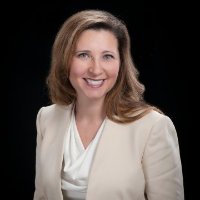JEFFERSON CITY, Mo. – A task force of higher education leaders in Missouri has taken aim at the degree programs of the colleges and universities in the Show Me State.
The task force was appointed at the request of Missouri Speaker of the House Todd Richardson and House Higher Education Committee Chair Steve Cookson in June 2016. Their goal is to evaluate how well the state’s institutions are meeting Missouri’s workforce and education needs by studying Missouri’s higher education system – including the missions of the state’s public colleges and universities, the degree programs they offer and the geographic regions they serve.
All of this is being done because of a concern for growing a more educated workforce. The National Center for Higher Education Management estimates that 66 percent of the jobs in Missouri will require a two- or four-year degree or certificate by 2020. In 2015, about 51.7 percent of working-age adults in the state has a degree or certificate. The goal is to increase that number to meet the demands across the state, not just at certain schools.

“There are some areas where there is a need in the workforce, and the local institutions do not currently have the ability to meet those needs,” Missouri Commissioner of Higher Education Zora Mulligan said. “Our goal is to make sure we can meet those. It’s about making sure the right programs are available in places throughout the state. While it doesn’t sound like that big of a deal, it’s a pretty significant shift in policy in the state of Missouri.”
The first stage of the task force’s work was looking into the process for approving degree programs and evaluating supply and demand. The task force unanimously endorsed an interim report, which was presented to the Coordinating Board for Higher Education Dec. 15.
“The task force brought college and university leaders together for a very lengthy, in-depth discussion about meeting regional and statewide higher education and workforce needs,” Mulligan said. “This was a definitely a very heavy lift. It has been the primary focus of the department. We’ve put a lot of time into research, finding out what other states are doing, where the gaps are in Missouri in terms of projected workforce needs, and sitting down with all of the parties to make sure we have the flexibility to meet those needs.”
The task force worked to design a way to streamline the process to approve programs, with a more extensive review for programs falling outside of the school’s mission. The schools would be required to show a need for the program, as well as a clear plan to meet that need, including the financial and academic abilities to offer one.
Recommendations from the task force included the suggestion that a limited number of universities in Missouri be allowed to offer “practice” doctorates in areas like education and health. They also said the University of Missouri System should strengthen their role as the state’s public research university and granter of research doctorates. They suggested that the other public universities could be allowed to collaborate with the University of Missouri to offer those degrees.
A final recommendation suggests limiting community colleges to offering associate degrees. A bachelor’s degree program could be authorized by the Coordinating Board if it becomes required in that field of work, does not duplicate an existing program, and if collaboration with another university is not feasible.
The Department of Higher Education and Coordinating Board would decide if the institutions have the resources needed to deliver a quality degree program.
This boils down to increasing the availability of programs statewide and offering more accessibility to fulfill the needs in all areas. By partnering institutions together, it increases the outreach of the programs, increasing the opportunities.
One question people might ask is cost.
“At this point, the expectation is pretty clear that if there’s a need that the state comes to an institution and asks them to address, there’s some chance that might be accompanied by new money, but ordinarily, that would be on the institution’s own existing budget to offer the program,” Mulligan said.
Task force members will continue to meet in the months ahead to address several additional issues including increasing access to higher education, improving degree and certificate attainment, strengthening collaboration among the state’s colleges and universities and identifying specific workforce needs.
Mulligan says that some of the recommendations will require statutory changes to be put into effect, requiring the legislature to put them in place. She says she expects it will be very likely that this issue will be brought up in the upcoming legislative session.
Benjamin Peters was a reporter for The Missouri Times and Missouri Times Magazine and also produced the #MoLeg Podcast. He joined The Missouri Times in 2016 after working as a sports editor and TV news producer in mid-Missouri. Benjamin is a graduate of Missouri State University in Springfield.








